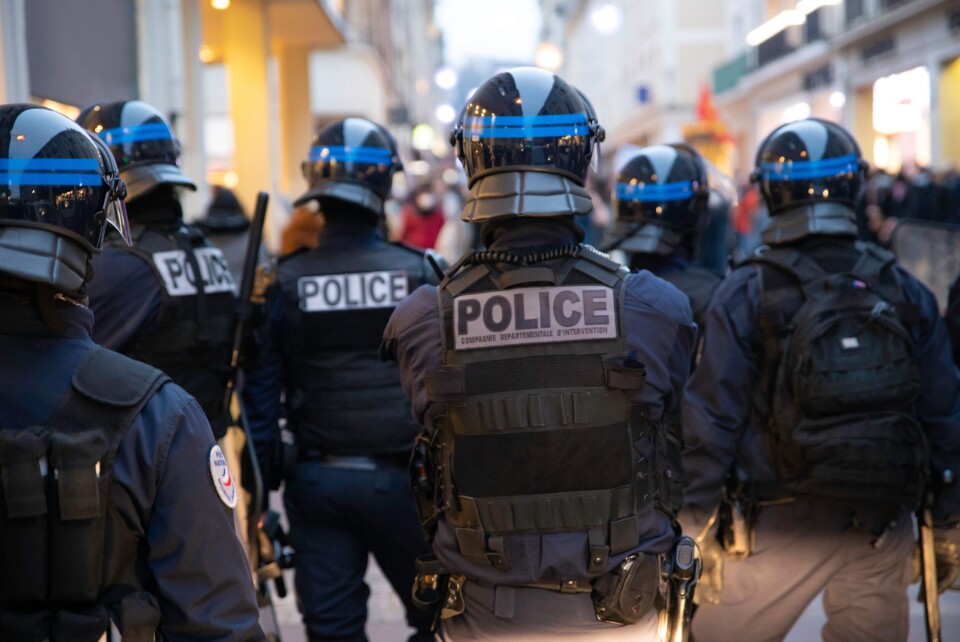-
Germany to prolong EU border checks: how travel from France is affected
Checks at land borders will take place until at least September 15, 2026
-
Floods in France: emergency measures underway amid ‘historic’ conditions
Gironde, Lot-et-Garonne and Maine-et-Loire among worst-hit with red warnings in place
-
Mardi Gras: 12 traditional carnival sweet treats to try in France
Gaufres, bugnes, merveilles and more
Timeline of unrest after French police allegedly shoot dead Nahel
Riots have continued after the incident in a Paris suburb on Tuesday

Tuesday, June 27
A 17-year-old driver is stopped by police around 8:30 at a traffic check after failing to stop in Nanterre, a Parisian suburb. The driver is at the wheel of a rented, yellow Mercedes AMG. Two other people are in the car.
As a video - authenticated by AFP news agency - later shows, two police officers question the driver, with one appearing to point a gun directly at him. The car abruptly drives off, but not before the officer appears to shoot the boy at point-blank range. The car later swerves off the road and comes to a stop.
The driver is given first aid but dies at the scene. One passenger flees and another is taken into custody.
The driver is named as Nahel M (initially reported as Naël), a 17-year-old boy from Nanterre. His shooting shocks France, with politicians and public figures coming out to question the police officer’s actions and to lend support to Nahel’s family.
It emerges that Nahel had previously committed several road offences, and was already known to police because of previous times he had refused to cooperate with law enforcement officers, said the Nanterre prosecutor.
The family instructs lawyers and announces plans to pursue the police for charges including voluntary homicide. The officer is later charged with this.
The police opened investigations into Nahel’s alleged actions and those of the police officer.
Riots begin the night of the shooting. Earlier that day, Interior Minister Gérald Darmanin says he has stationed at least 2,000 police officers to patrol the suburbs in a bid to control unrest. Later, he announces that 40,000 officers are on alert across France.
A total of 31 people are arrested in connection with the clashes, around 40 cars are burnt out, and 24 police officers are injured. Most of those arrested are reported as being aged 14-18.
Mr Darmanin calls for “calm” pending the “truth of the judicial inquiry to come out”.
Wednesday, June 29 - Thursday, June 30
Nahel’s mother Mounia leads a memorial march for her son.
She says that she does not blame all police, only the officer who shot her son. The officer, who is in custody, apologises to Mounia and says he is “devastated” at what happened.
Mounia says that the police officer “saw an Arab face…a young boy” and “wanted to kill him”.
Marche blanche en cours à #Nanterre.
— L'insoumission (@L_insoumission) June 29, 2023
Justice pour Nahel. pic.twitter.com/4cvxq8XbYY
Riots continue for a second and third night across the country, particularly in Nanterre, where the shooting took place, but also in Marseille, Lyon, Pau, Toulouse, Lyon, and Lille.
Mr Darmanin - who has been following the police actions from the central commandment centre overnight - announces that at least 667 people are arrested on the third night, and thanks the police and fire brigade for facing the “rare violence” with courage.
🚨🇫🇷 FLASH | Gérald #Darmanin suit l'évolution des #émeutes depuis le centre de commandement de la Police nationale. pic.twitter.com/gg3FebiesM
— Cerfia (@CerfiaFR) June 30, 2023
Cars are burned, buildings set alight, fireworks are thrown at police, and shops are looted. Schools are damaged, as are community centres, libraries, and mairies, as they are seen to be institutions that represent the state.
In Paris, some of the worst looting is on the high-end street of rue de Rivoli and in shops including Nike and Zara, while in Marseille some shops and small cafes are targeted. Elsewhere, in Nantes and Roubaix, supermarkets are looted and hotels set alight.
🚨🇫🇷EN DIRECT - De nombreuses voitures sont incendiées à #Nanterre. La situation est extrêmement tendue. (Clément Lanot - CL Press) pic.twitter.com/pAUpfDsCgh
— AlertesInfos (@AlertesInfos) June 29, 2023
Clashes take place in other towns and cities too, and several communes in Paris impose curfews until at least July 3, especially in Clamart (Hauts-de-Seine), Neuilly-sur-Marne (Seine-Saint-Denis), and Savigny-le-Temple (Seine-et-Marne).
Some of the rioters appear to use homemade projectiles, the AFP reports. Police respond with tear gas to dispel the protesters.
President Macron announces plans to hold a crisis meeting today at 13:00. The president, who is currently in Brussels for a European summit, may cut his visit short if necessary.
Related articles
French police accused of killing boy: What do we know about the case?
























